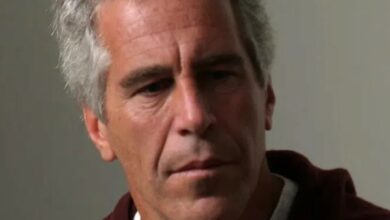
Several Dutch citizens who had autism or other intellectual disabilities have been euthanized by doctors in the Netherlands under the authority of the nation’s globalist government. In recent years, a number of Dutch patients have died by physician-assisted suicide after doctors determined their afflictions were untreatable obstacles to a normal life, researchers found.
According to a Kingston University investigation of Dutch euthanasia cases, nearly 40 people who were identified as being autistic or intellectually disabled were legally euthanized in the Netherlands between 2012 and 2021.
The UK study found that five people younger than 30 who were killed had cited autism as the sole or major reason for their decision to go through with euthanasia.
With those cases, experts have questioned whether the law allowing doctors to kill suicidal patients via lethal injections has strayed too far from its initial intentions when passed in 2002.
When the laws were first introduced, they were meant to offer terminally ill patients an option when their life had become too unbearable due to the pain of their untreatable illness.
Kasper Raus, an ethicist and public health professor at Belgium’s Ghent University, said the types of patients seeking out physician-assisted suicide have changed greatly over the past two decades in both the Netherlands and Belgium, where it is also legal.
As Slay News has reported, Belgium has now euthanized a staggering 27,000 citizens since its laws were relaxed.
When the Netherlands became the first country to legalize human euthanasia, the debate focused on people with cancer — not those with autism, Raus said.
Patients must meet strict requirements including suffering from an incurable illness that causes “unbearable” physical or mental anguish to be eligible for euthanasia.
However, doctors ultimately decide who qualifies.
In the roughly 10-year period the study focused on, nearly 60,000 people decided to die via euthanasia in the Netherlands, according to the Dutch government’s euthanasia review committee.
Of those deaths, the committee has released documents and data on 900 cases in an effort of transparency.
Kingston University researchers looked at those 900 cases and found 39 of them had autism or an intellectual disability.
Of the 39, 18 were younger than 50 years old.
Many of the patients cited a number of mental, physical, and age-related ailments as the reason for ending their lives — including unbearable loneliness.
Eight people, however, named the sole cause of their suffering as factors related to their intellectual disability — such as social isolation, a lack of coping strategies, an inability to adjust to change, or oversensitivity to stimuli.
One of the report’s main authors Irene Tuffrey-Wijne, a palliative care specialist at Kingston University, questioned the ethics of ending the lives of the autistic.
“There’s no doubt in my mind these people were suffering,” she said.
“But is society really OK with sending this message, that there’s no other way to help them and it’s just better to be dead?”
One of the eight people cited in the study was an autistic man in his 20s.
He reported feeling unhappy since childhood and was regularly bullied, according to his case notes.
The man “longed for social contacts but was unable to connect with others” and eventually decided he wanted to die because “having to live on this way for years was an abomination.”
Dutch psychiatrist Dr. Bram Sizzo was disturbed by the trend.
“Some of them are almost excited at the prospect of death,” Sizoo said.
“They think this will be the end of their problems and the end of their family’s problems.”
In a third of cases, Dutch doctors determined that there was “no prospect of improvement” for people with autism and intellectual disabilities, according to the study.
The director of Cambridge University’s Autism Research Centre, Simon Baron-Cohen, worried that people with such disabilities may not fully grasp the decision to end their lives.
He called it “abhorrent” that they were not offered more support and were instead euthanized




